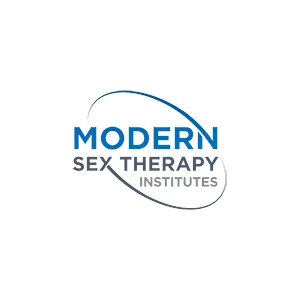September 2019 MSTI Weekend Workshops – New York, NY
Price range: $140.00 through $560.00
Industry leaders will serve as presenters on the following course topics:
 Dr. Rosara Torrisi, PhD |
 Madeleine Castellanos, MD |
 Daniel Watter, EdD |
CLICK EACH TITLE FOR MORE INFORMATION
[su_spoiler title=”Working Through Peripartum Sexuality Issues (4 CE Hours)” open=”no” style=”fancy” icon=”plus” anchor=”” class=”large”]
Saturday, September 21, 2019 | 9 am to 1 pm EST
Presenter by: Dr. Rosara Torrisi, LCSWR, MEd, CST, PhD
Description: This course examines some of the common peripartum issues individuals, relationships and families face. It aims to promote a sex-positive and inclusive approach to therapy surrounding peripartum issues. Some therapeutic assessments and interventions are addressed.
At the conclusion of the course, students will be able to:
- Discuss the psychological, interpersonal, biological, cultural, religious, and political factors that impact peripartum sexuality.
- Explain how the psychological, interpersonal, biological, cultural, religious, and political factors that can facilitate peripartum sexual health.
- Describe at least one therapeutic assessment that can be utilized to discern peripartum sexual issues.
- Demonstrate one therapeutic intervention that can be utilized in your work with peripartum individuals, relationships and families.
[/su_spoiler]
[su_spoiler title=”What every sex therapist should know about hormones and meds for men’s and women’s sexual dysfunction (2 CE Hours)” open=”no” style=”fancy” icon=”plus” anchor=”” class=”large”]
Saturday, September 21, 2019 | 2 pm to 4 pm EST
Presented by: Madeleine Castellanos MD
Sexual functioning is affected by a combination of psychological, physical, and relational factors. In this course, the impact of hormones in sexual functioning will be discussed, as well as what treatment options are available to both men and women to optimize hormone levels.
At the conclusion of the course, students will be able to:
- List 4 hormones that contribute to proper sexual functioning
- Explain how normal hormone levels might become unbalanced or disrupted.
- Describe the range of sex steroid hormonal treatments available for both men and women
- Discuss lifestyle factors that may impact sex steroid hormone levels and how to optimize these
[/su_spoiler]
[su_spoiler title=” Integration of medical treatment and sex therapy (2 CE Hours)” open=”no” style=”fancy” icon=”plus” anchor=”” class=”large”]
Saturday, September 21, 2019 | 4 pm to 6 pm EST
Presented by: Madeleine Castellanos MD
A true systems approach to good sexual functioning includes integration of medical treatment (when indicated) and sex therapy. This course will discuss how these are best combined with attention to symptoms suggesting when a referral for each is indicated.
At the conclusion of the course, students will be able to:
- Explain medical conditions may impact sexual functioning
- Identify which lifestyle factors may contribute to sexual disfunction
- Discuss the symptoms that may demonstrate the need for a consult with a sexual medicine specialist or other medical provider
- Describe strategies to effectively make referrals for their patients to medical providers for proper evaluation and treatment
- Discuss the systems approach to sexual functioning
[/su_spoiler]
[su_spoiler title=”Helping Couples Navigate Sexual Difficulties: Existential-Humanistic Approaches (4 CE Hours)” open=”no” style=”fancy” icon=”plus” anchor=”” class=”large”]
Sunday, September 22, 2019 | 9 am to 1 pm EST
Presented by: Daniel Watter, EdD
This workshop will address the assessment and treatment of sexual difficulties from a couples’ treatment perspective. The emphasis will be on those sexual difficulties that emanate from relational trauma, and are then triggered and re-created in current relationships. Such difficulties as disruption in sexual arousal, orgasm, and/or desire will be examined through a sex-positive, existential-humanistic lens. Assessment and treatment approached from an existential-humanistic lens represents a new model of assisting these couples through the alleviation of the distress that manifests itself within the sexual relationship. Case examples will be presented to illustrate the efficacy of the sex-positive, existential-humanistic model of treating sexual conflicts within the context of couples’ therapy.
At the conclusion of the course, students will be able to:
- Describe the Existential-Humanistic Approach to the assessment and treatment of sexual problems;
- Describe and list the types of relational traumas that can result in sexual dysfunction;
- Demonstrate at least two techniques of the Existential-Humanistic Approach that are efficacious in the treatment of sexual difficulties within the context of couples’ therapy;
- Develop and conceptualize treatment plans for approaching the treatment of sexual problems using couples therapy as the primary treatment modality.
[/su_spoiler]
[su_spoiler title=”Sexuality in Later Life: Navigating the Sexual Challenges of Changing Bodies (4 CE Hours)” open=”no” style=”fancy” icon=”plus” anchor=”” class=”large”]
Sunday, September 22, 2019 | 2 pm to 6 pm EST
Presented by: Daniel Watter, EdD
As people are living longer, concerns about quality of life have taken on an increasingly prominent place in the lives of our patients. One of the most frequently expressed concerns/frustrations with aging is how to manage the sexual changes that naturally occur in an aging body. Such concerns have implications for both levels of self-esteem and relationship/intimacy maintenance and enhancement. This presentation will address the myriad sexual dilemmas facing our aging patients, as well as suggest strategies the practicing psychologist can employ when working with such patients.
At the conclusion of the course, students will be able to:
- At the conclusion of this presentation, participants will be able to discuss the sexual concerns common to aging psychotherapy patients.
- Participants will be able to apply treatment strategies based on an existential-humanistic treatment model.
- Participants will be able to analyze the ethical conflicts presented in our current focus of treatment for this population.
[/su_spoiler]
FIND OUT MORE
For questions, contact Rachel Needle, PsyD, co-director of Modern Sex Therapy Institutes, at drrachelneedle@gmail.com, or call 561-379-7207

